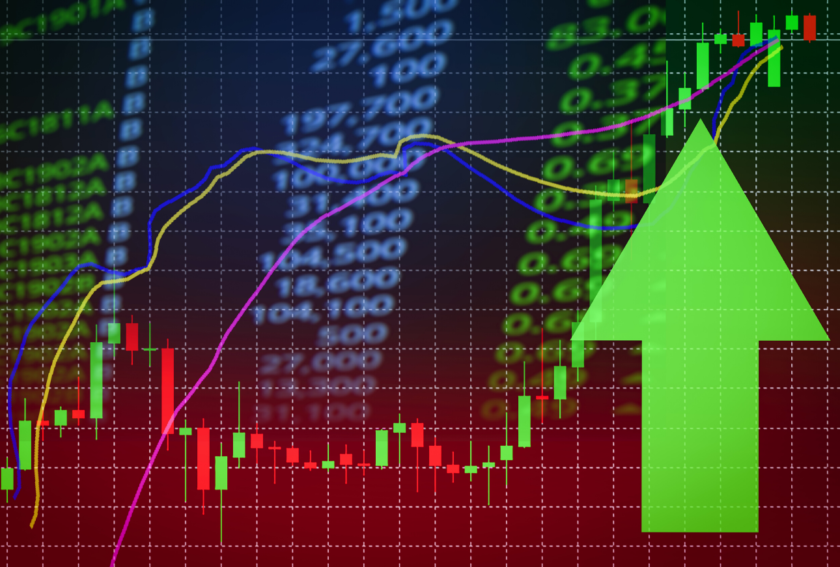In a series of articles over the next week, the investment teams of Nikko Asset Management ponder how the different markets may pan out in 2021. Here, the Asia equity team considers how Asian economies may fare coming out of the Covid-19 crisis.
Simply put, Asian countries have, by and large, handled the COVID-19 pandemic better than their western counterparts and are now emerging from that nadir. Most of these countries have plenty of fiscal and/or monetary stimulus headroom. And this superior growth and better national finances are available at a significant discount to developed markets. A languid US dollar will enhance local currency returns in these “risk assets”.
Crouching Tiger, Hidden Dragon
That China is aware of the US bipartisan support for policies to straitjacket its technological progress is old news. That it is taking steps to mitigate the fallout is also not new. And given the country’s track record in getting things done that really matter to it, give or take a couple of years and a few hundred billion renminbi, one wouldn’t bet against it. So, the world’s second largest economy will march to its own beat.
In this regard, for the first time this century, China’s Five-Year Plan, its 14th, does not have an explicit economic growth target. This is as much a reflection of Chinese President Xi Jinping’s consolidation of power as it is of the country’s shift from “quantity to quality”. The former because Xi is comfortable admitting that China’s growth rate will slow structurally; the latter because there is cognizance in the corridors of power that the old model of relying on fixed asset investment to “grow” out of trouble is no longer viable. Enter the “dual circulation” strategy—at its core, China aims to remain open to the world (international circulation), while engineering a shift from infrastructure-led growth to innovation- and consumption-led growth domestically (domestic circulation).
Announcements or targets in the areas of fiscal sustainability, stabilising supply chains (especially as it pertains to semiconductors), and addressing climate change via the national emissions trading scheme, will show a commitment to “walk the talk”. The government’s no-nonsense approach apropos corruption and abuse of power, even if the perpetrators are the giants of China’s digital economy, ought to lead to a broadening and deepening of innovation.
Meanwhile, Hong Kong continues to come to terms with the reality that the “one country, two systems” is only possible if the “one country” doesn’t feel threatened by the “second system”. The recent arrest of activists aimed at fostering patriotism may raise hackles in the western press but will not change reality on the ground. In keeping with these views, we prefer to invest in areas of improving Chinese domestic demand, localisation and strategic industry development.
‘English, August’ no more?
The Indian movie (and book, before it) ‘English, August’ is a portrayal of two different Indias – the educated, sophisticated and posh urban India; and the uneducated, inefficient, rural one – and the tensions between the two in the context of bloated government bureaucracy. But that may well be a thing of the past. Indian Prime Minister Narendra Modi’s government has pushed through labour and agriculture reforms that could be transformative if executed well. Labour reforms have also relaxed onerous restrictions on lay-offs, fixed-term employment and unions, thereby boosting efficiency. The new laws significantly reduce the compliance burden, which has been a major deterrent for investments in labour-intensive sectors in much need of productivity improvements, such as agriculture. Agriculture employs some 44% of India’s 450-million strong workforce but contributes only about 15% of its economic output. This sector will also benefit from the recent passage of reforms announced in May via much- needed investment in the supply chain, which makes it more efficient. We continue to focus on sub-sectors benefiting from trends such as market consolidation, formalisation, and companies that reduce the friction of doing business, namely private sector banks, digital services and logistics.
Beauty and the Beast
An enduring change accelerated by COVID-19 will be increased digitisation – of work, social media and commerce. And digitisation of anything relies heavily on the semiconductor industry and the technology supply chain. In this regard, South Korea and Taiwan remain well positioned, notwithstanding the rising tensions between China and the US. However, geopolitics will be a major driver of volatility. Trump’s “America First” stance has already forced these US allies to take stock of their relations with China, the largest economy in Asia and one that is still growing faster than most economies anywhere. China’s state media has dedicated appreciable newsprint to China’s repeated incursions into Taiwanese airspace over the last month. These moves are tantamount to a warning by Beijing to both Taipei and Washington not to change status quo vis-à-vis the “One China” policy. On the other hand, President Xi’s planned visit to South Korea reflects a warming of relations between those two nations, though there is no predicting how, and how quickly, that can change. Thus, we like esoteric sectors such as clean technology, content and industrial automation.
The Gods Must Be Crazy
There’s a never a dull day in ASEAN. If it isn’t the constant musical chairs of politics in Malaysia or the changes of government in Thailand (or threats thereof), it is the wild gyrations in the Indonesian rupiah or the Thai baht. In other developments, Indonesian President Joko Widodo passed the contentious Omnibus reforms, paving the way for greater foreign direct investment. Also in Indonesia, COVID-19 has catalysed a massive acceleration in digitisation. And Indonesia and Vietnam, in particular, are benefiting from the redesign of supply chains currently heavily reliant on China. Malaysia remains uninteresting except in niche segments. Thailand’s lacklustre economy needs a sizeable fiscal impulse, one that is unlikely given ongoing political developments. Singapore’s stock market remains a proxy for the region, albeit with a better governance framework. Besides continued capital inflows from Hong Kong, there is little fundamentally that excites us here. The Philippines is showing early signs of a cyclical recovery, and we are content to stay watchful for now.
The year 2020 has been an unforgettable one, the first half unpleasantly so. But as we look into 2021, it is worth noting the words of the wise Greek philosopher Socrates that “the secret of change is to focus all of your energy, not on fighting the old, but on building the new”.
Important information: This document is prepared by Nikko Asset Management Co., Ltd. and/or its affiliates (Nikko AM) and is for distribution only under such circumstances as may be permitted by applicable laws. This document does not constitute personal investment advice or a personal recommendation and it does not consider in any way the objectives, financial situation or needs of any recipients. All recipients are recommended to consult with their independent tax, financial and legal advisers prior to any investment.
This document is for information purposes only and is not intended to be an offer, or a solicitation of an offer, to buy or sell any investments or participate in any trading strategy. Moreover, the information in this document will not affect Nikko AM’s investment strategy in any way. The information and opinions in this document have been derived from or reached from sources believed in good faith to be reliable but have not been independently verified. Nikko AM makes no guarantee, representation or warranty, express or implied, and accepts no responsibility or liability for the accuracy or completeness of this document. No reliance should be placed on any assumptions, forecasts, projections, estimates or prospects contained within this document. This document should not be regarded by recipients as a substitute for the exercise of their own judgment. Opinions stated in this document may change without notice.
In any investment, past performance is neither an indication nor guarantee of future performance and a loss of capital may occur. Estimates of future performance are based on assumptions that may not be realised. Investors should be able to withstand the loss of any principal investment. The mention of individual securities, sectors, regions or countries within this document does not imply a recommendation to buy or sell.
Nikko AM accepts no liability whatsoever for any loss or damage of any kind arising out of the use of all or any part of this document, provided that nothing herein excludes or restricts any liability of Nikko AM under applicable regulatory rules or requirements.
All information contained in this document is solely for the attention and use of the intended recipients. Any use beyond that intended by Nikko AM is strictly prohibited.



































